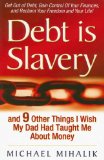Golf is an expensive hobby, but it’s possible to play frugal golf. I mostly gave up on playing anymore when I started my how to get out of debt plan. However, I miss the game and decided that cutting out something I enjoy to save money isn’t always a wise thing to do (assuming it wasn’t financially impossible for me to keep playing, which it wasn’t). So I started playing again, but I’m doing so with a budget and I’m making an effort to stretch my golf dollars farther than before.
If you’re interested in the details, I’m starting with a budget of $50 per month. This is enough for about 2-3 (inexpensive) rounds and some practice time.
Spend more practice time on your short game than the long game:
According to Dr. Bob Rotella, “If you’re not spending 70 percent of your practice time on shots from 120 yards in, you’re not trying to become the best golfer you can be.” [Golf is Not a Game of Perfect, pg 88]. Not only will more short game practice save you money, but it’s the best way to improve your scoring.
Use old balls found on the course for practice:
During any normal round you’re going to come across lost balls. If I’m certain no one around has played the ball and it’s not badly damaged I’ll pick up as many as I can. I don’t generally use these balls to play, but I save them for the shag bag and use them on the practice greens. This is a great way to keep your supply of practice balls without spending extra money.
Buy a ball retriever.
I used to think ball retrievers were a bit silly, but with many balls costing $3 – $4 each, it can quickly pay for itself. The best part is, a ball lost in the water may have only been hit once so you’ll often find balls that are essentially brand new. I also find that the golfers playing the most expensive balls are the least likely to bother to retrieve them from a lake. The better the course you play, the higher quality you’ll tend to find.
Check for tee times on GolfNow.com, but give the course a call too.
Golf Now is sort of like an Expedia or Travelocity for golf. It acts as the middleman helping golf courses sell open tee times and you benefit by getting a reduced rate. I find rates are almost always cheaper on Golf Now, but not 100% of the time. To be really sure you’re getting the best deal, you might want to give the course a call before you book on Golf Now.
Play during off-peak hours.
For me, playing in Tucson, AZ, off-season is about May – September and the cheapest tee times are to be had in the afternoon. Of course, that means playing in 100 – 110 degree heat, but as they like to say, ‘it’s a dry heat’. As long as I stay hydrated and wear sunscreen, I really don’t have much problem playing in the heat here at all. I’ve suffered much more playing golf in the summer in San Antonio, TX (think 90 degrees with 90% humidity). I recently played a course that costs as much as $170 per round during peak season for only $35. The course is still as beautiful and challenging as ever, I just had to suffer through the heat to enjoy it. 🙂
In summary, don’t make the mistake that I made and give up on golf (or whatever your favorite hobby may be) because of the cost, if it’s something you truly enjoy. It’s possible to find a middle ground and approach your hobby in a wise and frugal manner. Value can be found, you just have to work a little harder to find it. In the end, I’m much happier to be out playing frugal golf within my budget.


